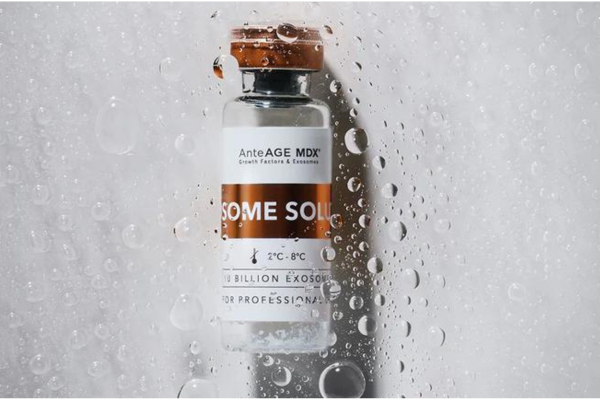Exosomes
Exosomes- the latest and quite promising new addition to skincare
Exosomes are tiny, membrane-bound vesicles that are released by cells as a means of intercellular communication. These small structures play a crucial role in transferring various biomolecules, such as proteins, RNA, and lipids, between cells. They are involved in numerous physiological and pathological processes in the body, contributing to cell-to-cell communication, immune responses, tissue repair, and disease progression. Their function lies in communication with other cells and tissues in order to induce a change cell in activity or behavior.
How are Exosomes made?
Exosomes can be obtained from various cell types and biological fluids through specific isolation methods. Here’s an overview of the general process for obtaining exosomes:
- Culturing Cells: A culture of skin cells is created in a lab. As the tissue grows, it releases exosomes.
- Isolation: The culture medium containing exosomes is collected and processed through ultracentrifugation and ultrafiltration. These techniques help separate exosomes from other cellular debris and particles.
- Purification: After isolation, the collected exosomes may undergo further purification steps to remove unwanted material and ensure that the exosome preparation is suitable for research or therapeutic use.
HOw are exosomes used in aesthetics and anti-aging?
ItExosomes are gaining attention in the field of aesthetics and anti-aging due to their potential to promote skin rejuvenation, hair restoration, and wound healing, among other benefits. Here’s a closer look at how they are being utilized in these areas:
Skin Rejuvenation: are being investigated for their potential to promote skin rejuvenation. They may contain growth factors and other signaling molecules that could stimulate collagen production, improve skin texture, and enhance overall skin appearance. It’s use in treatments are being explored as potential alternatives to traditional treatments like dermal fillers and chemical peels.
Hair Restoration: They are also being researched for their potential in promoting hair growth and addressing hair loss. It is thought that these tiny molecules derived from stem cells could influence hair follicle regeneration and improve hair thickness and density.
Wound Healing: Exosomes have been studied for their ability to accelerate wound healing. By delivering bioactive molecules to damaged skin tissue, may enhance the body’s natural healing processes, potentially reducing scarring and improving the appearance of the skin after procedures like laser treatments or surgeries.
Anti-Inflammatory Effects: They may have anti-inflammatory properties that could benefit individuals undergoing aesthetic procedures that involve inflammation, such as certain types of laser treatments. By modulating the immune response and reducing inflammation, and could potentially contribute to faster recovery and improved outcomes.
Topical Applications: Exosome-based skincare products are being developed as potential additions to skincare routines. These products may contain variations derived from stem cells or other sources, aiming to deliver bioactive molecules to the skin to improve its health and appearance
FUTURE PROSPECTS AND RESEARCH
The potential applications of exosomes in aesthetics and anti-aging are vast, and ongoing research continues to uncover new possibilities. Researchers are exploring how exosomes can be combined with other treatments to enhance their efficacy and provide comprehensive skincare solutions. For instance, combining exosome therapy with microneedling, laser treatments, or dermal fillers could offer synergistic effects, leading to more significant and long-lasting results.
Personalized Skincare
While exosome therapy shows great promise, it’s essential to ensure the safety and efficacy of these treatments through rigorous clinical trials and research. Standardizing the isolation and purification processes, as well as understanding the mechanisms of action, will help establish exosome-based treatments as reliable and effective options in the field of aesthetics and anti-aging.
CONSULTATION AND PRECAUTIONS
Before considering exosome therapy for aesthetic or anti-aging purposes, it’s crucial to consult with a qualified healthcare provider or dermatologist. They can evaluate your skin condition, discuss potential benefits and risks, and determine whether exosome therapy is a suitable option for you. As with any cosmetic procedure, individual responses may vary, and a professional assessment is essential to achieve the best possible outcomes.
Safety and Efficacy
Exosomal therapy represent a groundbreaking advancement in the field of aesthetics and anti-aging. Their ability to facilitate cell communication and deliver bioactive molecules opens up new possibilities for skin rejuvenation, hair restoration, wound healing, and more. As research continues to advance, exosome-based treatments are poised to become integral components of innovative skincare and anti-aging regimens. We offer Anteage MDX for skin rejuvenation
